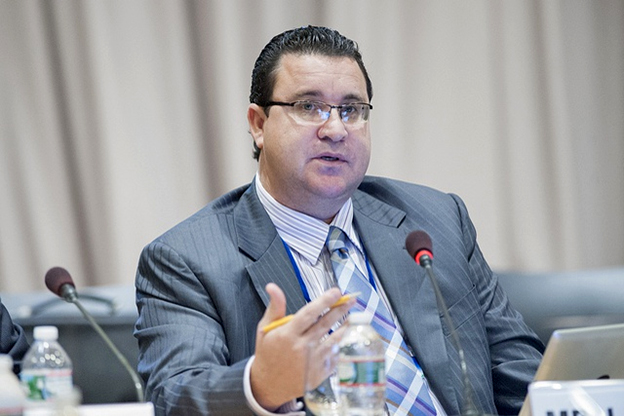The World Bank has approved $103.4 million for Ghana to reverse land degradation and strengthen integrated natural resource management in about three million hectares of degraded landscapes, working with communities of the Northern Savannah Zone and the cocoa forest landscape.
The cost of environmental degradation in Ghana due to unsustainable use of land for agriculture, forests, and mining stands at 2.8% of national Gross Domestic Product as of 2017.
If the current natural resource extraction remains unchanged, Ghana will see its natural resource base destroyed over the long term, with fewer opportunities to sustain growth and shared prosperity.
“"The project will help boost post-Covid-19 economic recovery, create jobs and secure livelihoods in some of the poorest parts of Ghana by focusing on agricultural productivity, ecosystems management and sustainable small-scale mining,” said World Bank Country Director, Pierre Laporte.
The Ghana Landscape Restoration and Small-Scale Mining project will focus on land-use planning for integrated landscape management and promote sustainable mining by helping formalize artisanal and small-scale mining. It will also support sustainable land, water, and forest management activities in the climate vulnerable target landscapes.
“The project aims to place landscapes and mining sector management on a path that would transition from degraded landscapes, poverty, and low productivity toward one of resilient landscapes that optimize the ecosystem functions for better livelihoods and more sustainable economic returns,” said World Bank Practice Manager, Environment, Natural Resources and Blue Economy, Sanjay Srivastava.
The project will also enhance women’s role in local-level forest and landscape management activities, and create better income-generating opportunities. Over 250,000 people will benefit from the project.
"This joint project aligns with the World Bank's Forest-Smart Mining Initiative and will promote forest-smart interventions in the artisanal and small-scale mining sector and strengthen regulatory compliance and sustainable mining practices," said World Bank Acting Practice Manager, Energy & Extractives Global Practice, Zubin Bamji.
The financing includes an IDA credit of $75 million and $28.4 million in grants from the Global Environmental Facility, the Extractive Global Programmatic Support, and the Global Partnership for Sustainable and Resilient Landscapes (PROGREEN) multi-donor Trust Funds.
Latest Stories
-
Mining in Motion: African leaders arrive in Ghana for landmark industry summit
9 minutes -
Trump’s tariffs ‘not going away’ as deadline for deals loom, top adviser says
28 minutes -
MTN Ghana honours community champions at 2025 Heroes of Change Awards
39 minutes -
Ensuring sanity in the professional practice space – supporting our regulatory councils
2 hours -
UK backs Morocco’s autonomy plan for Sahara as credible basis for resolution, pledges support at all levels
2 hours -
Pyramids beat Sundowns to win first-ever CAF Champions League title
3 hours -
Pyramids FC win CAF Champions League following 2nd leg victory over Sundowns
3 hours -
Pyramids FC clinch first CAF Champions League title with victory over Mamelodi Sundowns
4 hours -
Nations FC cite “poor officiating” and “security lapses” as reasons for abandoning Basake Holy Stars match
4 hours -
Breaking the cycle: School girls in Techiman unite against child marriage, demand menstrual dignity
4 hours -
2024/25 GPL: Hearts dispatch relegated Legon Cities
5 hours -
2024/25 GPL: Samartex edge Aduana Stars 2-1 in final home game
5 hours -
GPL 2024/25: Karela United thump Accra Lions at home
5 hours -
Prof. Kwaku Asare shoots down Fiscal Council proposals
5 hours -
2024/2025 GPL: Holy Stars, Nations FC game abandoned after violence
5 hours

